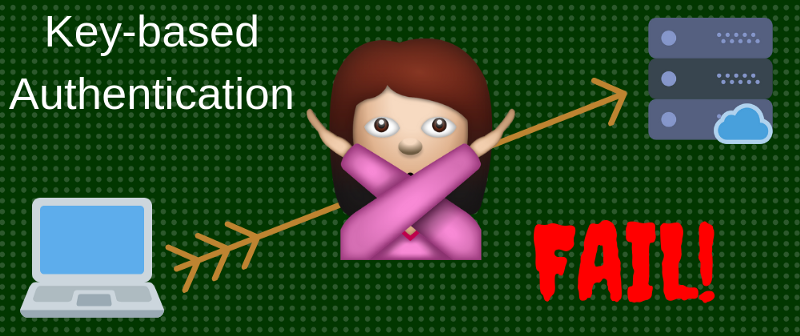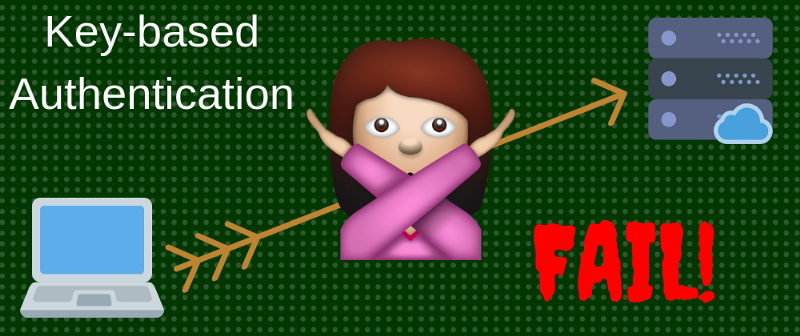by Arit Amana
What to do when key-based authentication isn’t working after ssh-copy-id

I recently provisioned a Ubuntu virtual private server (VPS) on Vultr. I’m partial to CentOS myself, but the task I was working on recommended Ubuntu.
To set up key-based authentication from my laptop to the server,
- I generated a new SSH keypair (named “ubuntu”) on my Mac using the command:
ssh-keygen -t rsa -b 4096 - I then used the
ssh-copy-idutility to copy my public key over to theauthorized_keysfile on my Vultr VPS:ssh-copy-id -i .ssh/ubuntu aritdev@123.456.789.000
As I expected, the utility asked for my VPS password in order to complete the public key transfer. When all was done, I attempted to login to my VPS.
It should have let me through without requiring a password:
ssh -i .ssh/ubuntu aritdev@123.456.789.000
But I kept getting prompted for a password. ?
- I checked my
authorized_keysfile over on the VPS to make sure my public key had been copied over correctly. Check. ?? - I made sure that the file was read-write only for myself and none others. Check. ??
- I made sure that the following options were enabled in
/etc/ssh/sshd_config:PubkeyAuthentication yesandAuthorizedKeysFile .ssh/authorized_keys. Check. ??
Still, I kept getting prompted for a password upon login from my laptop.
After a few minutes on StackOverflow, I learned about Encrypted Home Directories, which are default in some environments, including Ubuntu.
Encrypted home directories aren’t decrypted until the initial login is successful. However, my authorized_keys file is stored in my home directory.
Therefore, my first connection attempt will require a password. Subsequent connections will succeed without a password, since the SSH service will then be able to read my authorized_keys file in my decrypted home directory.
To get around this, I created a directory named after my username aritdev outside of my home directory (I chose /etc/), and gave it full permissions for myself, but read-execute permissions for everyone else. Next, I moved my authorized_keys file into /etc/aritdev/. Then, I updated the AuthorizedKeysFile parameter in /etc/ssh/sshd_config:
AuthorizedKeysFile /etc/%u/authorized_keys
Finally, I restarted the SSH service. To test, I logged out of my VPS, then attempted to log back in. BOOM - it worked! ??
What issues related to server authentication have you experienced? How did you solve them? Please share below! ??
